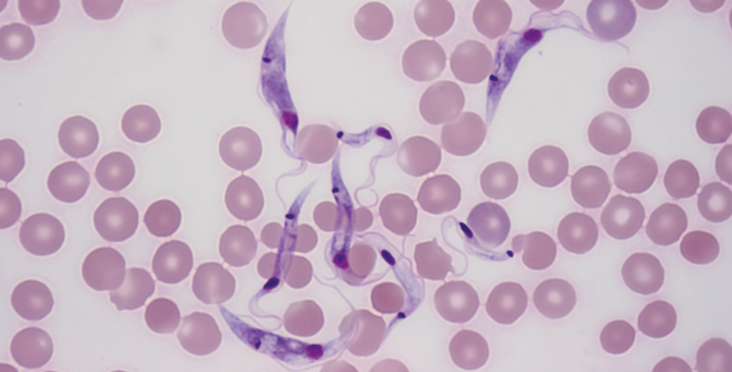The labs of Norbert Polacek and André Schneider (Department of Chemistry, Biochemistry and Pharmaceutical Sciences, University of Bern) discovered that in Trypanosoma brucei upon nutritional stress tRNAs get shortened so that they can not be used for translation, which leads to reduction of translation. As soon as nutrition conditions improve, the tRNAs are repaired and can take part again in translation. The researches were able to identify the responsible enymes for the shortening and the repair of the tRNAs. Their findings were published in Nucleic Acids Research.
Abstract
Sensing of environmental cues is crucial for cell survival. To adapt to changes in their surroundings cells need to tightly control the repertoire of genes expressed at any time. Regulation of translation is key, especially in organisms in which transcription is hardly controlled, like Trypanosoma brucei. In this study, we describe the shortening of the bulk of the cellular tRNAs during stress at the expense of the conserved 3' CCA-tail. This tRNA shortening is specific for nutritional stress and renders tRNAs unsuitable substrates for translation. We uncovered the nuclease LCCR4 (Tb927.4.2430), a homologue of the conserved deadenylase Ccr4, as being responsible for tRNA trimming. Once optimal growth conditions are restored tRNAs are rapidly repaired by the trypanosome tRNA nucleotidyltransferase thus rendering the recycled tRNAs amenable for translation. This mechanism represents a fast and efficient way to repress translation during stress, allowing quick reactivation with a low energy input.
Read the Publication in Nucleic Acids Research (Open Access)
Website Polacek Lab
Website Schneider Lab
Image by Mark Perkins via Flickr published under a CC BY-NC 2.0 license. Not the entire image was used.
Abstract from Cristodero et al. (2021) Nucleic Acids Research published under a CC BY-NC 4.0 license
